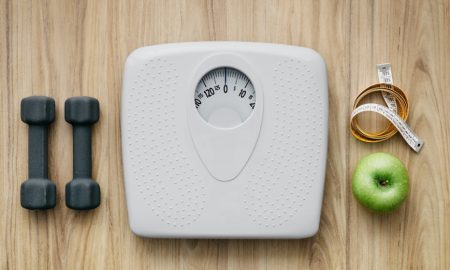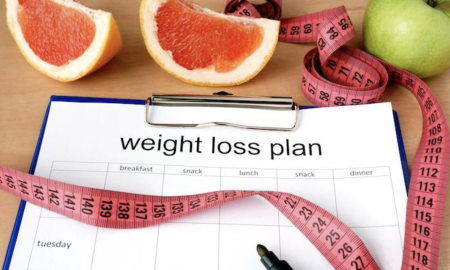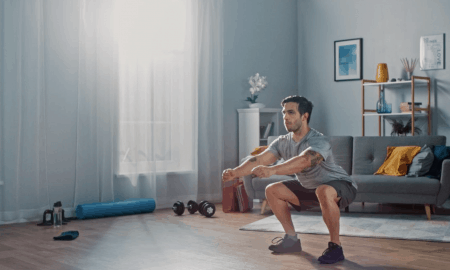
Imagine how good it would be to have one anxiety-free day. If you’re someone with this condition, it seems impossible. Anxiety pops up all the time, seemingly at random.
Anxiety can be a daily recurrence. It’s a good idea, therefore, to act before it becomes chronic.
In this post, we take a look at some of the things that you can do to combat the condition and get the internal mental life that you want.
Be More Active
Being active is one of the best ways to fight anxiety. People who are constantly on the move report far higher levels of wellbeing than those who aren’t.
But why is this? Researchers believe that several factors are involved.
Movement, for instance, is a good distraction from anxiety. If you’re concentrating on a sport, you don’t have enough cognitive reserve to worry about your work or relationships. You’re fully engaged in the activity.
There’s also evidence that elevating the heart rate changes your biochemistry, making it much less likely that you’ll experience any kind of attack. It causes the brain to release anti-anxiety neurochemicals, including GABA and endocannabinoids.
When it comes to exercise, just do whatever makes you feel comfortable. You want something sustainable, not just a quick fix. Check with your boss about corporate fitness packages for getting more active. These are designed specifically for employee workouts including remote classes you can watch together and follow along.
Drink Chamomile Tea
Chamomile (as well as some other herbs), are powerful at fighting the symptoms of generalized anxiety disorder. Studies have found, for instance, that people who take around 200 mg of chamomile five times per day are much less likely to experience anxiety symptoms than those who don’t.
Chamomile may also be beneficial for people whose anxiety interrupts their sleep. Extract of the plant helped study participants fall asleep faster than controls.
Why chamomile is effective isn’t well known. There’s evidence that the tea may work similarly to benzodiazepines, binding to receptors in the nervous system in a similar way, but without the risk of addiction.
Use CBD
These days, you can easily find CBD online. The hemp extract is now well-known for its anti-anxiety effects, with millions of people now swearing by its effectiveness.
It works by initiating the release of feel-good hormones from the brain. People who take CBD are much more likely to report feeling calm and relaxed compared to those who don’t.
Use Aromatherapy
Chamomile isn’t the only herb with proven benefits for anxiety. There are a range of others that may work just as well, if not better.
Many essential oils from herbs, for instance, help you to relax, sleep and boost your mood. They may also reduce heart rate and blood pressure if you are someone who is prone to these effects of stress.
Some of the best essential oils include lavender, bergamot, and grapefruit. You can also try ylang ylang and the lesser-known, clary sage.
Avoid Junk And Eat A Balanced Diet
Most nutritionists agree that eating a Mediterranean or Okinawan diet is the best for health and longevity. However, they may also be superior for mental wellbeing as well.
Processed foods that include artificials colors, flavors and preservatives, may cause some people to experience mood changes. In addition, if you eat too much sugar, you may find it harder to maintain a stable mood.
Eating a diet rich in whole grains, legumes, and vegetables is always advisable.
Keep Your Caffeine Intake To A Minimum
Caffeine is great for perking you up, but it can also make you feel anxious. It’s well known for producing jitters and even panic attacks.
If you must take caffeine, avoid regular coffees and teas. Instead, take green tea as it contains chemicals that help to dull some of the unwanted side effects of caffeine.
If tiredness is a problem for you, look at other aspects of your lifestyle that might be getting in the way of your health. Use sleep and good food habits to avoid reliance on stimulants. Stay away from energy drinks.
Don’t Use Cigarettes
People use cigarettes to calm the nerves and feel better. However, despite the short-term effects of nicotine, those who smoke appear to be at higher risk of developing anxiety disorders.
There are many different ways to quit these days. Among the best is simply to use cheap cigarette substitutes, such as toothpicks. You can also use patches and gum until you’re feeling stronger to take the final step.
Don’t Use As Much Alcohol
Lastly, you’ll want to reduce your alcohol intake. Research shows that, while it’s a natural sedative, those who drink more than they should are at higher risk of developing anxiety disorders.


















Follow Us